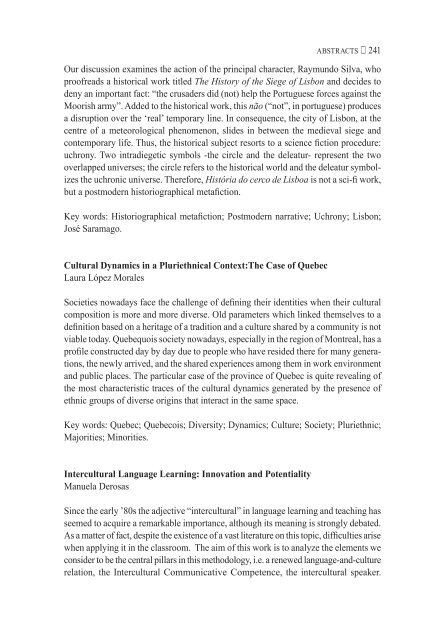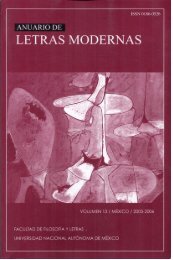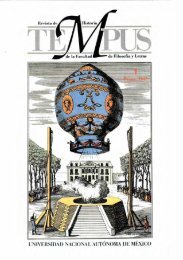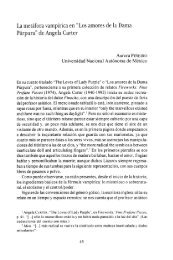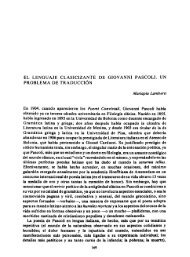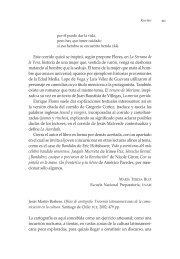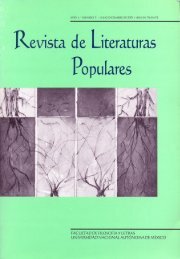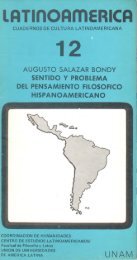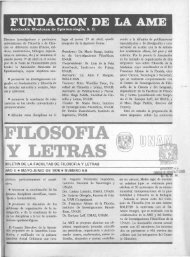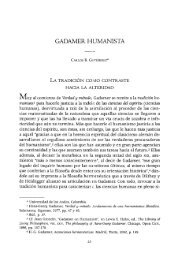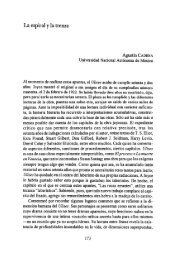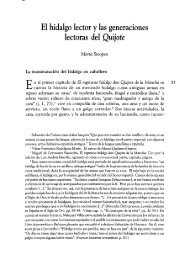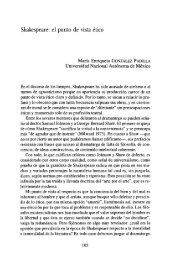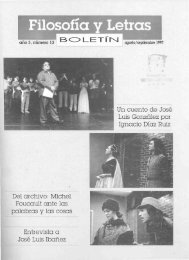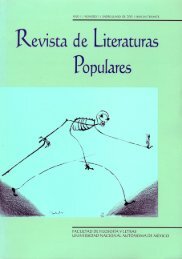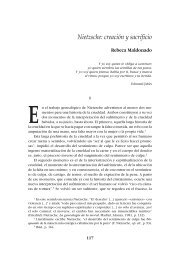Untitled - Repositorio de la Facultad de Filosofía y Letras. UNAM ...
Untitled - Repositorio de la Facultad de Filosofía y Letras. UNAM ...
Untitled - Repositorio de la Facultad de Filosofía y Letras. UNAM ...
You also want an ePaper? Increase the reach of your titles
YUMPU automatically turns print PDFs into web optimized ePapers that Google loves.
abstracts 241<br />
Our discussion examines the action of the principal character, raymundo silva, who<br />
proofreads a historical work titled The History of the Siege of Lisbon and <strong>de</strong>ci<strong>de</strong>s to<br />
<strong>de</strong>ny an important fact: “the crusa<strong>de</strong>rs did (not) help the Portuguese forces against the<br />
Moorish army”. ad<strong>de</strong>d to the historical work, this não (“not”, in portuguese) produces<br />
a disruption over the ‘real’ temporary line. In consequence, the city of Lisbon, at the<br />
centre of a meteorological phenomenon, sli<strong>de</strong>s in between the medieval siege and<br />
contemporary life. Thus, the historical subject resorts to a science fiction procedure:<br />
uchrony. two intradiegetic symbols -the circle and the <strong>de</strong>leatur- represent the two<br />
over<strong>la</strong>pped universes; the circle refers to the historical world and the <strong>de</strong>leatur symbolizes<br />
the uchronic universe. therefore, História do cerco <strong>de</strong> Lisboa is not a sci-fi work,<br />
but a postmo<strong>de</strong>rn historiographical metafiction.<br />
Key words: Historiographical metafiction; Postmo<strong>de</strong>rn narrative; Uchrony; Lisbon;<br />
José saramago.<br />
Cultural Dynamics in a Pluriethnical Context:The Case of Quebec<br />
Laura López Morales<br />
Societies nowadays face the challenge of <strong>de</strong>fining their i<strong>de</strong>ntities when their cultural<br />
composition is more and more diverse. Old parameters which linked themselves to a<br />
<strong>de</strong>finition based on a heritage of a tradition and a culture shared by a community is not<br />
viable today. Quebequois society nowadays, especially in the region of Montreal, has a<br />
profile constructed day by day due to people who have resi<strong>de</strong>d there for many generations,<br />
the newly arrived, and the shared experiences among them in work environment<br />
and public p<strong>la</strong>ces. the particu<strong>la</strong>r case of the province of Quebec is quite revealing of<br />
the most characteristic traces of the cultural dynamics generated by the presence of<br />
ethnic groups of diverse origins that interact in the same space.<br />
Key words: Quebec; Quebecois; Diversity; Dynamics; culture; society; Pluriethnic;<br />
Majorities; Minorities.<br />
Intercultural Language Learning: Innovation and Potentiality<br />
Manue<strong>la</strong> Derosas<br />
since the early ’80s the adjective “intercultural” in <strong>la</strong>nguage learning and teaching has<br />
seemed to acquire a remarkable importance, although its meaning is strongly <strong>de</strong>bated.<br />
As a matter of fact, <strong>de</strong>spite the existence of a vast literature on this topic, difficulties arise<br />
when applying it in the c<strong>la</strong>ssroom. the aim of this work is to analyze the elements we<br />
consi<strong>de</strong>r to be the central pil<strong>la</strong>rs in this methodology, i.e. a renewed <strong>la</strong>nguage-and-culture<br />
re<strong>la</strong>tion, the Intercultural communicative competence, the intercultural speaker.


